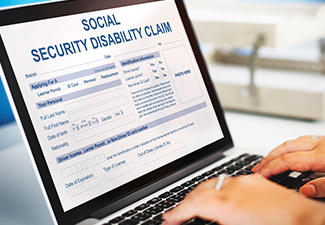Will Getting Married Affect My Social Security Disability?
March 27, 2023
 Qualifying for Social Security Disability Insurance (SSDI) is difficult enough. More than half of all applicants are denied on their first try. After being awarded the benefits, a recipient certainly doesn’t want to do anything to jeopardize continuing with their monthly checks. What happens, however, if when you apply, you’re single, and then after being approved, you decide to get married? Will marriage jeopardize your SSDI?
Qualifying for Social Security Disability Insurance (SSDI) is difficult enough. More than half of all applicants are denied on their first try. After being awarded the benefits, a recipient certainly doesn’t want to do anything to jeopardize continuing with their monthly checks. What happens, however, if when you apply, you’re single, and then after being approved, you decide to get married? Will marriage jeopardize your SSDI?
The short answer is no. Qualifying for SSDI is based on your work history and how many “credits” you’ve accumulated by paying into the Social Security system through workplace or self-employment taxes, and also on having a qualifying disability. Marital status has nothing to do with the process. However, this does not hold true if you’re receiving Supplemental Security Income (SSI). Also keep in mind that your dependents who are receiving SSDI auxiliary or survivor benefits may lose their benefits if they get married.
For all your questions and concerns about Social Security Disability in or around Raleigh, North Carolina, contact me at Lloyd King Law Firm PLLC. I am a former Social Security Disability Judge who can help you in all aspects of the SSDI or SSI process, either by filing a claim or appealing a decision. I also proudly serve clients in Roanoke Rapids, Fayetteville, and Greensboro.
Qualifying for SSDI and Retaining Your Benefits
Marital status largely has nothing to do with being approved for Social Security Disability Insurance, or SSDI. The two major factors in the decision are whether you’ve paid enough into the system through taxes and whether your physical or mental condition qualifies as a disability under the definition employed by the Social Security Administration (SSA).
Through payroll deductions or self-employment taxes, you earn what the SSA calls “work credits.” You can earn up to four work credits a year. In 2023, you earn one credit for each $1,640 in quarterly earnings. How many credits you need to qualify for Social Security Disability depends on your age, but for anyone 31 or older, you must have earned 20 credits in the 10 years preceding your disability.
As for defining a disability, the SSA relies on the Code of Federal Regulations, which states that a disability is “the inability to do any substantial gainful activity by reason of any medically determinable physical or mental impairment which can be expected to result in death or which has lasted or can be expected to last for a continuous period of not less than 12 months.”
Substantial gainful activity, or SGA, is the amount of money you can earn and still qualify for SSDI. The sums are different for blind and non-blind persons, but generally for 2023, if you earn more than $1,470 a month, you cannot qualify for SSDI. The figure for the blind is $2,460. Your marital status is not a consideration. Therefore, should you get married after being on SSDI, nothing should typically change for you.
Which Benefits Would Be Affected by Marriage?
Supplemental Security Income, or SSI, can be affected if the recipient marries. SSI is a disability program funded outside of Social Security but managed by the SSA for low-income disabled persons who do not qualify using work credits. If the disabled recipient gets married, the SSA will employ a process called “deeming income” to redetermine eligibility.
The Code of Federal Regulations states: “We use the term deeming to identify the process of considering another person's income to be your own. When the deeming rules apply, it does not matter whether the income of the other person is actually available to you. We must apply these rules anyway.”
The deeming rule applies even if the SSI recipient is living with a parent or what is termed an “essential person,” as well as to a spouse. An essential person is someone residing in the same household with the disabled recipient who has income of their own. Additionally, if you marry someone who is also receiving SSI, the payment amount will be adjusted from an individual’s rate to a couple’s rate.
Divorced spouses who are receiving benefits from their prior spouse’s account will see those benefits withdrawn if they remarry. Children who are receiving benefits will see them cease once they turn 18 or 19 if they are still in high school. If they marry before then, their benefits may also cease.
Widow/widower and divorced widow/widower payments may end if you remarry, but it also depends on your age. If you remarry before age 60, you will likely see your payments stopped, though if the marriage ends, you may be re-eligible for benefits based on your deceased spouse’s earnings record. If you remarry after 60, your benefits may continue.
Understand Your Disability Rights
Whichever category or status you find yourself in when it comes to Social Security Disability in or around Raleigh, North Carolina, contact me at Lloyd King Law Firm PLLC.
As a former Disability Judge, I understand both how the SSA administers its programs and what your individual rights are. I will help you in the claims process and represent you in any reconsiderations or appeals you may need to make. Set up a consultation with me today.
